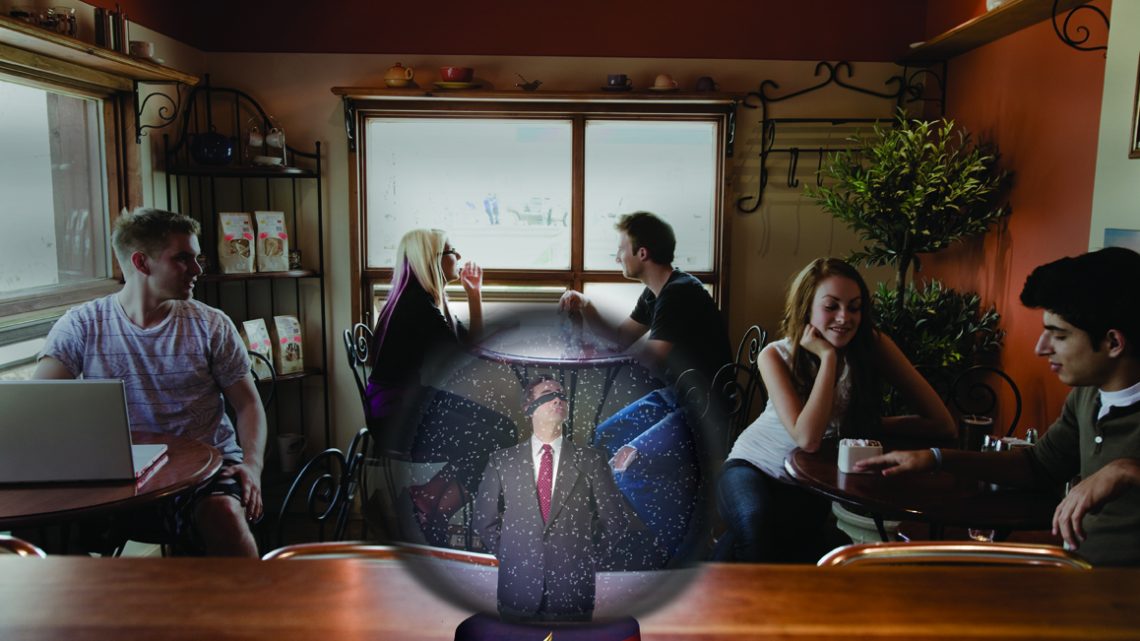~by Emily Syvertson~
At 8:00 pm I restlessly longed for morning. The walls in my dorm room bored me with their invariable bricks. What’s happening outside them, beyond this campus? People must be doing far more interesting things.
This was a mild case of the curiosities, which often plagued my boarding academy friends and me. We felt secluded, forced to return to the dorms for the night at 7:45 after a full day on campus. I wanted to join the community around me; instead, they knew us only as “the school on the hill.”
Now that I am out of academy, I don’t experience this feeling of separation. Yet I think this attitude of seclusion extends beyond our schools and manifests itself in our adult lives. Many of us find our niche and are compelled to curl up in it, cozy and content. But how can we connect with others when we aren’t willing to explore the world we live in?
Into the World
In John 17:14-18 Jesus prays for His disciples who are to be His ambassadors on earth. He explains that they are not of the world any more than He is. His desire is not that they are taken out of the world but protected from the evil that dwells there. In verse 18, Jesus says to God the Father, “As you sent me into the world, I have sent them into the world.”
The world that God wants separation from refers to the evil influence of Satan on this planet. The world that God sends us into is the world of people who have yet to be saved. They are both the world because they stroll hand-in-hand; to go into the world of people and preach the gospel, we must also move about in a world full of temptation.
Culture—Not Contamination
The mistake we tend to make as God-seeking humans is confusing culture for sin. We often think that cutting ourselves off from the masses will protect us from negative worldly influences. Nothing is further from the truth. Separation is a tool Satan uses to keep us from supporting each other. People who seem different from us may struggle with similar problems. We may never find similarities with others if we hesitate to get involved with them. What if we reached beyond the comfortable and grasped at the cultural?
What if we focused on restoring the world instead of leaving it?
Culture is not contamination. It is a language—those who know it move about freely and communicate with others that share it. The more we become involved in cultures, the better we can connect with others. After all, sinful contamination can reach us whether we are isolated or amidst a crowd. Understanding our culture should not be viewed as contaminating one’s mind, but broadening one’s social scope.
I’m not suggesting that everyone should immediately watch every movie, listen to every song, and absorb every bit of popular culture out there. Discernment is a tool God installed in our brains that can be built up and nurtured by those around us. He also gave us a ruler to help us measure things (Phil. 4:13).
Hiding from all things cultural limits us. Ironically, we remain ignorant of the very things that affect us, whether we recognize their influence or not. By being aware of human culture and seeking to understand how it is important to us, we learn a language that everyone understands; we choose to go into the world that our fellow human beings live in.
Following Jesus’ Example
Jesus shows us how to be a part of anyone’s life while remaining connected to God. He talked with, ate with, preached to, and healed both the saved and the sinners without forfeiting faithfulness to His Father. He was an extension of God’s hand—His presence in sinners’ lives spread the message of love. Yet He kept a balance between spending time with people and God. Time with His disciples and worship in the synagogue were important aspects of His spiritual life. On top of that, He escaped the world and went off to pray alone to His Father one-on-one.
What if we, like Jesus, found a balance between isolation and immersion? What if we kept an open mind about other people, an open eye to what is happening around us? What if…?
Emily Syvertson is a sophomore language arts education major from Sauk Rapids, Minnesota, attending Union College in Lincoln, Nebraska.










